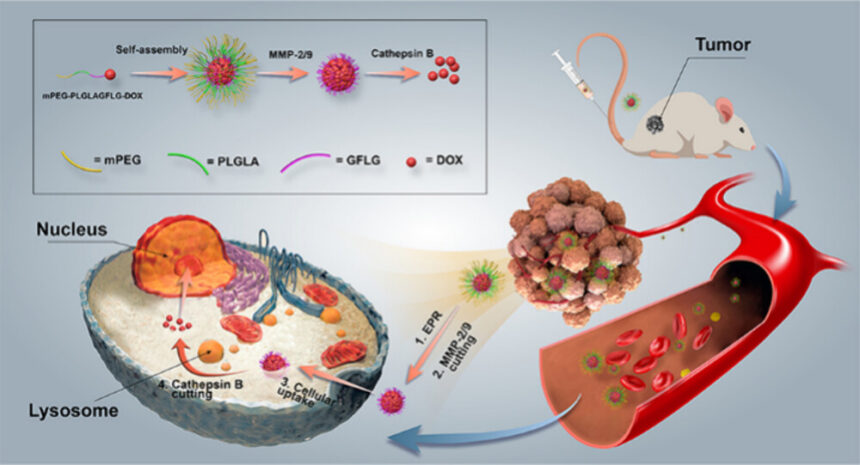For decades, chemotherapy has been the cornerstone of cancer treatment. Its aggressive approach, targeting rapidly dividing cells, has saved countless lives—but often at a steep cost to the patient’s overall health and quality of life. From hair loss and fatigue to a weakened immune system, the side effects of chemotherapy are notorious. But now, researchers and pharmaceutical companies are moving closer to a transformative shift: replacing chemotherapy with targeted cancer drugs for some patients.
This breakthrough represents a new frontier in personalized medicine, offering hope for more precise, effective, and less debilitating cancer therapies. While not yet a universal replacement, targeted treatments are already reshaping oncological protocols for certain cancers—and the momentum is building rapidly.
What Are Targeted Cancer Therapies?
Targeted cancer drugs are treatments designed to zero in on specific molecules involved in the growth, progression, and spread of cancer. Unlike chemotherapy, which affects all rapidly dividing cells—including healthy ones—targeted therapies aim for cancer-specific biomarkers, genetic mutations, or proteins, thereby sparing much of the surrounding healthy tissue.
These drugs work by interfering with cancer cell proliferation, blocking signals that prompt tumors to grow, or delivering toxins directly to cancer cells. Some also stimulate the immune system to recognize and attack malignant cells more effectively.
Examples include:
- Tyrosine kinase inhibitors (e.g., imatinib for chronic myeloid leukemia)
- Monoclonal antibodies (e.g., trastuzumab for HER2-positive breast cancer)
- PARP inhibitors for BRCA-mutated cancers
The Shift Away from Chemotherapy
The move away from chemotherapy is not merely theoretical. In some cancers—such as certain forms of breast cancer, lung cancer, and leukemia—targeted therapies have already become first-line treatments, dramatically improving patient outcomes and reducing side effects.
For instance, in HER2-positive breast cancer, trastuzumab and similar drugs have substantially lowered relapse rates. Similarly, non-small cell lung cancer (NSCLC) patients with mutations in the EGFR or ALK genes often benefit more from targeted therapy than from chemotherapy.
A recent study conducted by leading research hospitals in the United States and Europe found that patients receiving targeted therapy lived longer and reported fewer severe side effects compared to those who underwent traditional chemotherapy. These findings are influencing how oncologists design treatment plans—often prioritizing targeted drugs and immunotherapies over chemo when possible.
Pharma’s Race to Innovate
Pharmaceutical companies are investing billions into research and development to identify new molecular targets and design corresponding drugs. Firms like AstraZeneca, Pfizer, Roche, and Novartis are at the forefront, each boasting pipelines filled with experimental targeted treatments.
The commercial appeal is clear. Targeted therapies can command premium prices, and with aging populations and cancer rates climbing globally, the market is expanding. At the same time, the precision of these treatments allows drugmakers to pitch them as more humane and science-driven solutions compared to the blunt force of chemotherapy.
Biotech startups are also entering the arena, leveraging artificial intelligence and genomic data to design therapies tailored to individual tumor profiles. The field of precision oncology is rapidly evolving, and with each successful clinical trial, the prospect of replacing chemotherapy grows stronger.
Challenges and Caveats
Despite the optimism, targeted therapies are not a panacea. Cancer is a complex, adaptive disease, and tumors can develop resistance to these treatments over time. Moreover, not all patients exhibit the biomarkers required for a targeted drug to work effectively.
Additionally, the costs associated with targeted therapies can be prohibitive. A single course of treatment can cost tens or even hundreds of thousands of dollars, raising concerns about accessibility and insurance coverage.
Another challenge lies in diagnostics. Identifying the right targets requires sophisticated genomic testing, which is still not standard practice in many hospitals around the world. Even when such tests are available, interpretation of results can vary between clinicians, adding another layer of complexity.
Regulatory Momentum and Patient Access
Regulatory bodies such as the U.S. Food and Drug Administration (FDA) and the European Medicines Agency (EMA) have recognized the potential of targeted therapies and are accelerating approval processes. Recent years have seen a surge in “breakthrough therapy” designations, aimed at expediting the development of drugs that demonstrate substantial improvement over existing treatments.
Patient advocacy groups are also playing a crucial role by pushing for expanded access to genomic testing and greater transparency around clinical trial results. Public awareness campaigns have helped shift the conversation around cancer treatment toward one that emphasizes precision, dignity, and long-term survivorship.
A Personalized Future
The dream of tailoring cancer treatment to each individual’s genetic profile—once the stuff of science fiction—is now a scientific reality. Targeted therapies mark a significant step toward that vision. As research deepens and technology advances, the role of chemotherapy may continue to shrink, eventually becoming the exception rather than the rule.
Already, there are promising indications that, for some cancers, the chemo-free future has arrived. Patients can now hope not only for longer lives, but for better quality of life during and after treatment.
Conclusion
While chemotherapy is not disappearing overnight, its dominance is being steadily challenged. Targeted cancer drugs, backed by cutting-edge science and growing clinical success, are changing the landscape of oncology. As these therapies become more widely available, the future of cancer care looks not only more personalized, but also more humane.
For patients, doctors, and drugmakers alike, this is more than a medical revolution—it’s a transformative shift in how we understand and treat one of humanity’s most formidable diseases.






